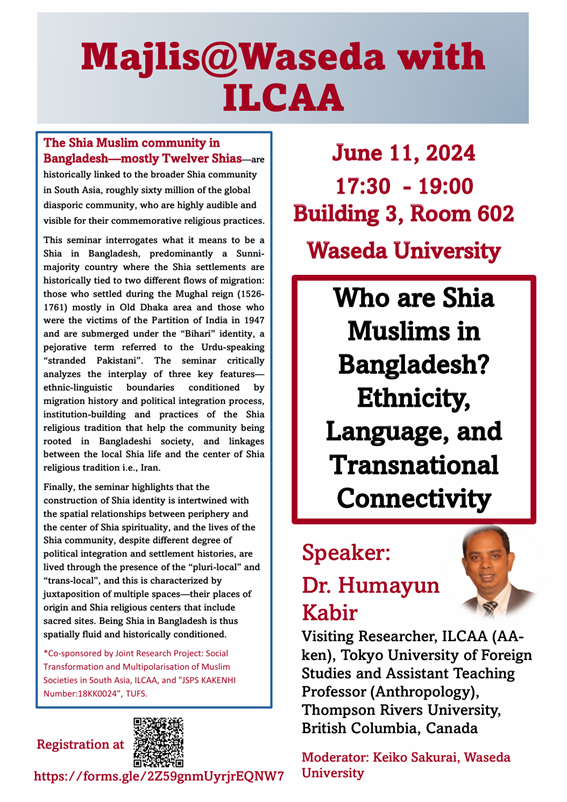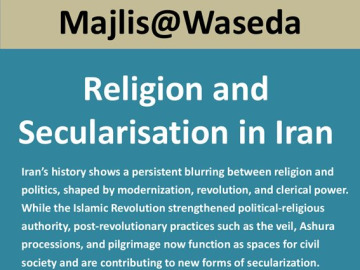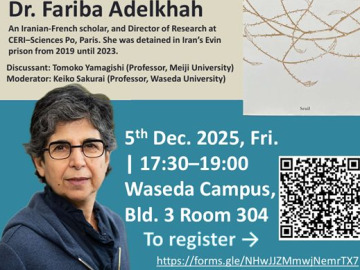We are delighted to inform you that the Chair of the State of Qatar for Islamic Area Studies at Waseda University will host Majlis@Waseda with ILCAA on June 11, 2024. Here are some details about the event:
Majlis@Waseda with ILCAA*
June 11, 2024
Title: Who are Shia Muslims in Bangladesh? Ethnicity, Language, and Transnational Connectivity
Speaker: Dr. Humayun Kabir,
Visiting Researcher, ILCAA (AA-ken), Tokyo University of Foreign Studies (TUFS), and Assistant Teaching Professor (Anthropology), Thompson Rivers University, British Columbia, Canada
Moderator: Keiko Sakurai, Waseda University
Venue: Waseda University, Building 3 Room 602,
Date and Time: June 11, 2024, 17:30~ 19:00
Pre-registraion: if you wish to attend, please register at https://forms.gle/2Z59gnmUyrjrEQNW7
The Shia Muslim community in Bangladesh—mostly Twelver Shias—are historically linked to the broader Shia community in South Asia, roughly sixty million of the global diasporic community, who are highly audible and visible for their commemorative religious practices. This seminar interrogates what it means to be a Shia in Bangladesh, predominantly a Sunni-majority country where the Shia settlements are historically tied to two different flows of migration: those who settled during the Mughal reign (1526-1761) mostly in Old Dhaka area and those who were the victims of the Partition of India in 1947 and are submerged under the “Bihari” identity, a pejorative term referred to the Urdu-speaking “stranded Pakistani”. The seminar critically analyzes the interplay of three key features—ethnic-linguistic boundaries conditioned by migration history and political integration process, institution-building and practices of the Shia religious tradition that help the community being rooted in Bangladeshi society, and linkages between the local Shia life and the center of Shia religious tradition i.e., Iran. Finally, the seminar highlights that the construction of Shia identity is intertwined with the spatial relationships between periphery and the center of Shia spirituality, and the lives of the Shia community, despite different degree of political integration and settlement histories, are lived through the presence of the “pluri-local” and “trans-local”, and this is characterized by juxtaposition of multiple spaces—their places of origin and Shia religious centers that include sacred sites. Being Shia in Bangladesh is thus spatially fluid and historically conditioned.
Co-sponsored by Joint Research Project: Social Transformation and Multipolarisation of Muslim Societies in South Asia, ILCAA, and “JSPS KAKENHI Number:18KK0024”, TUFS.






